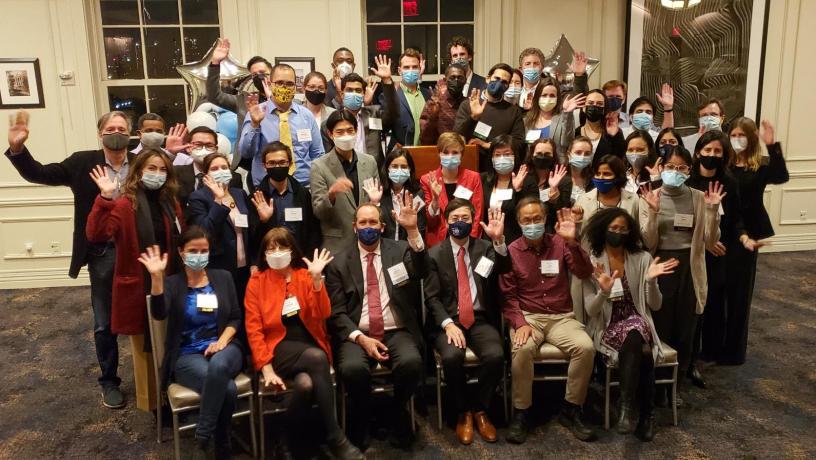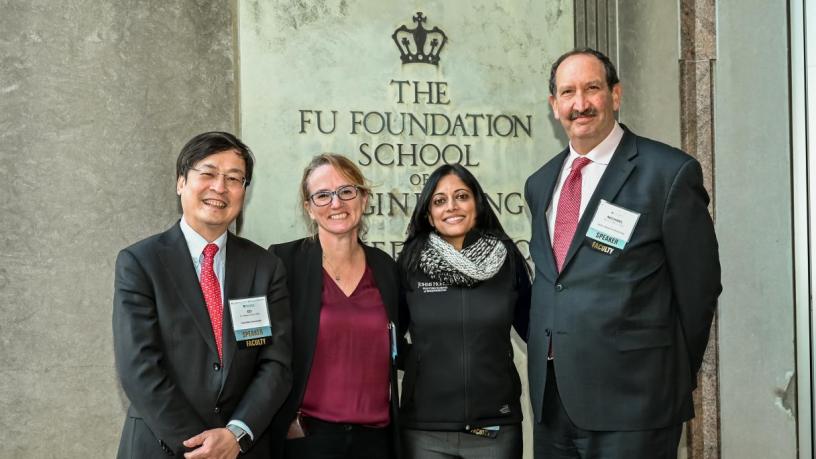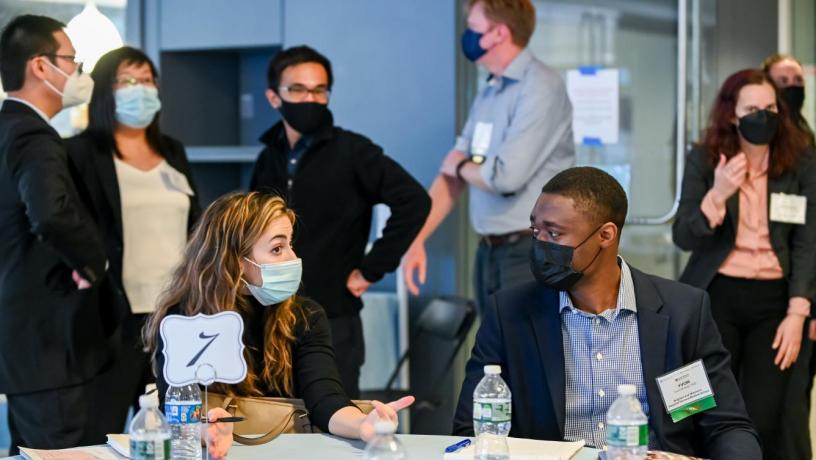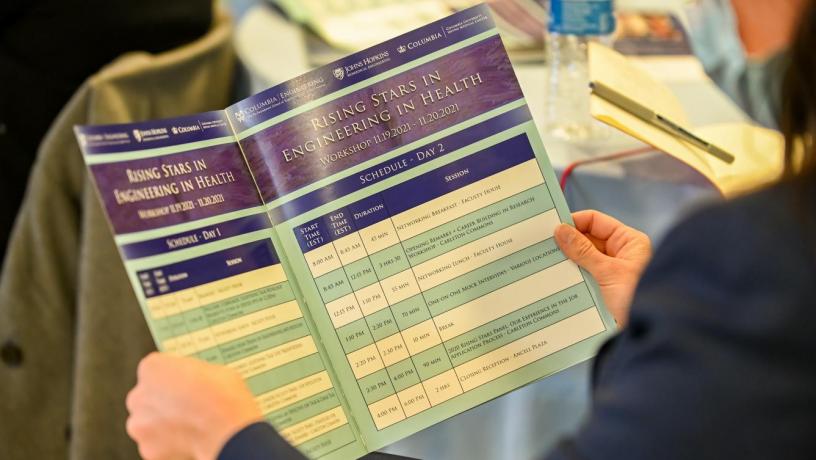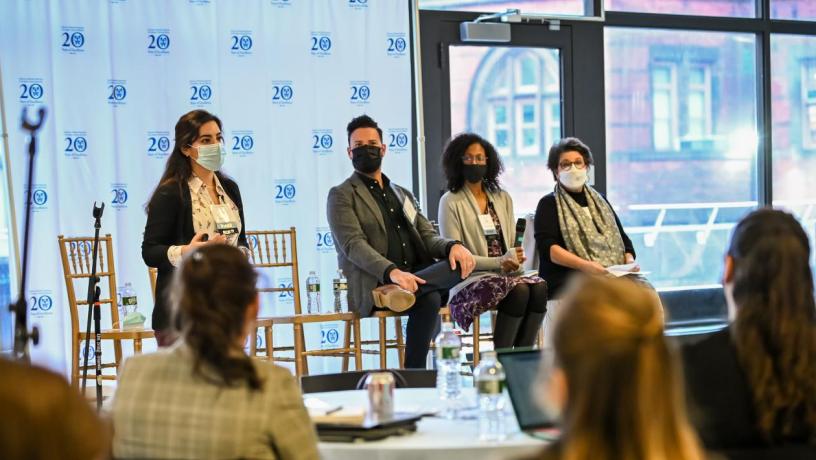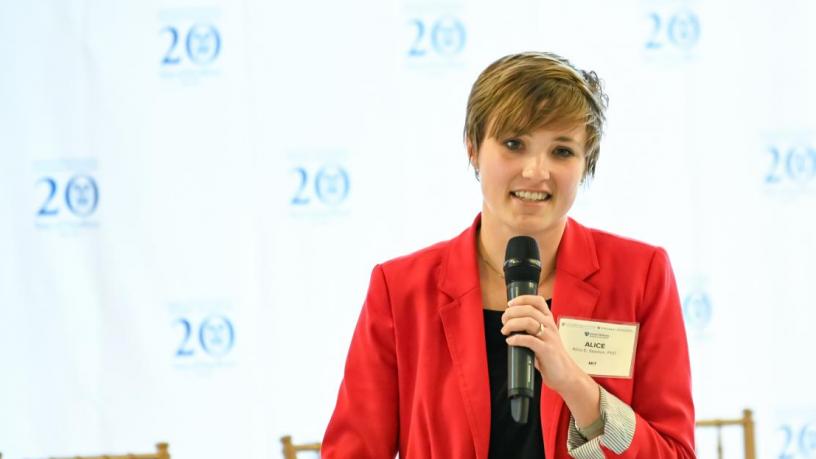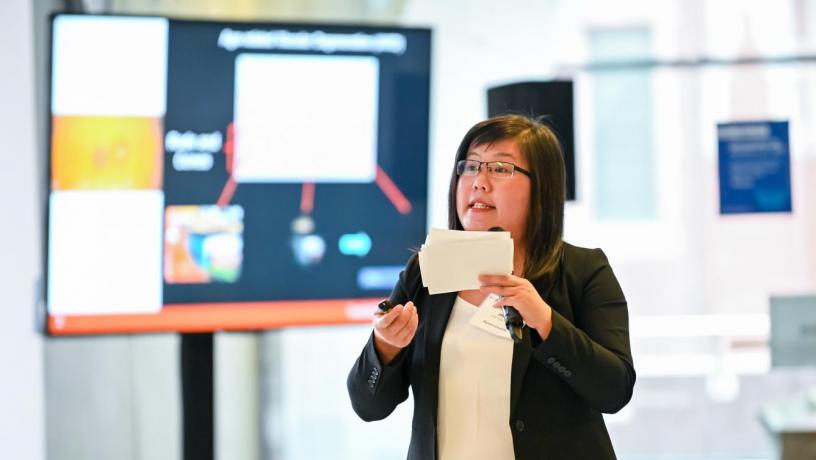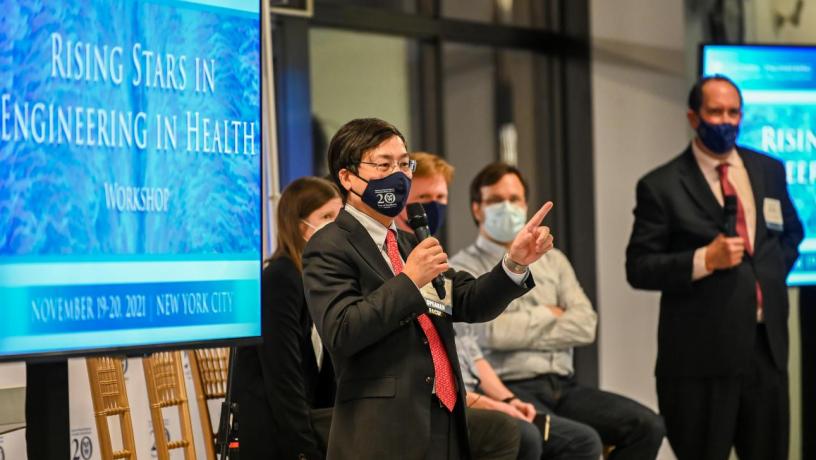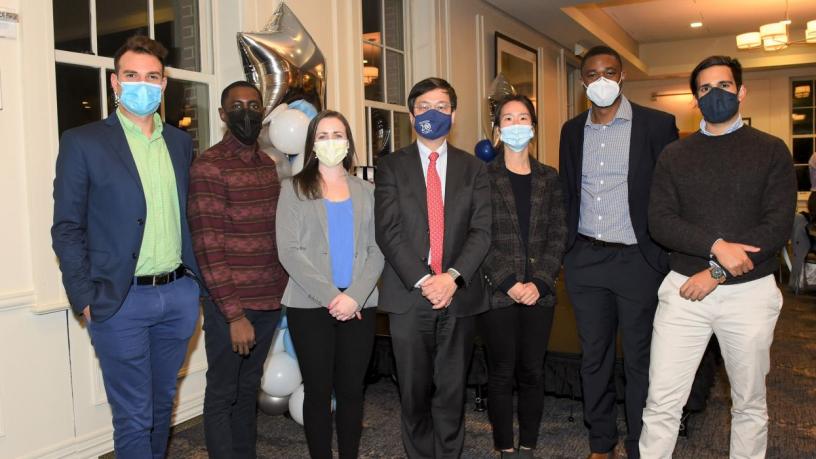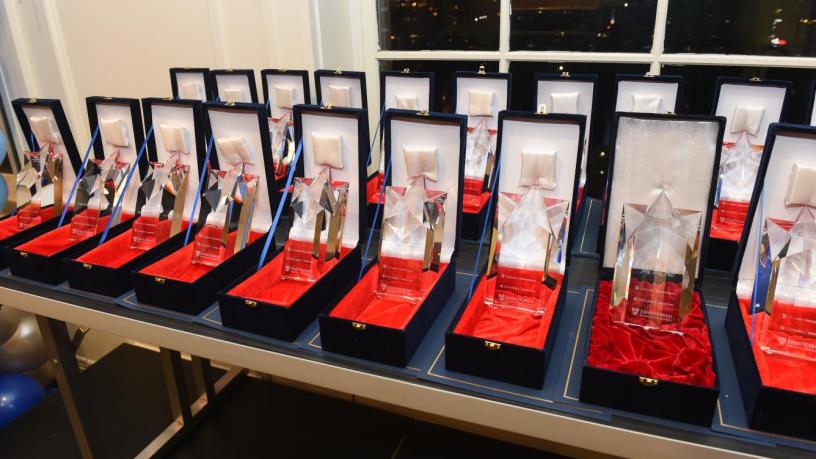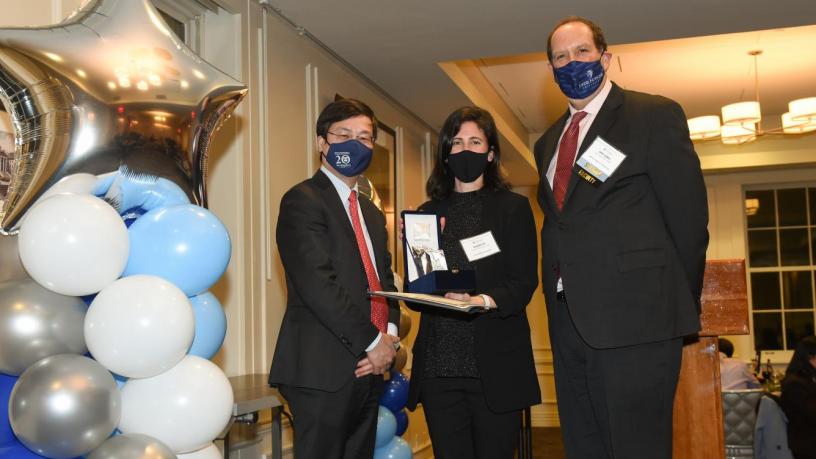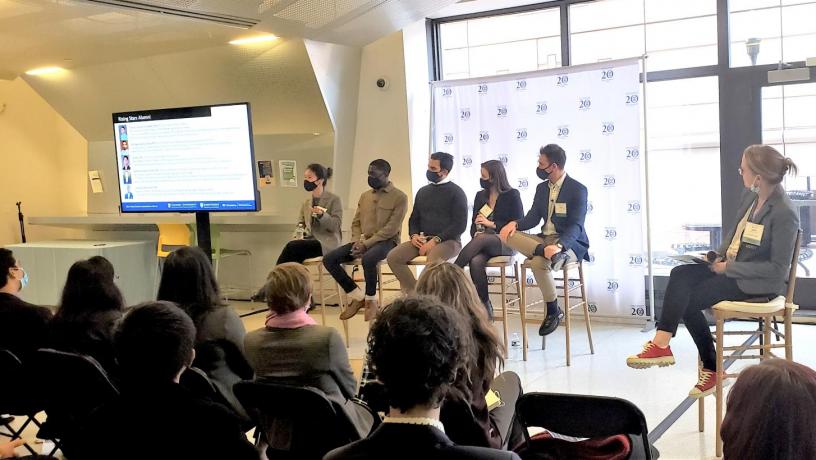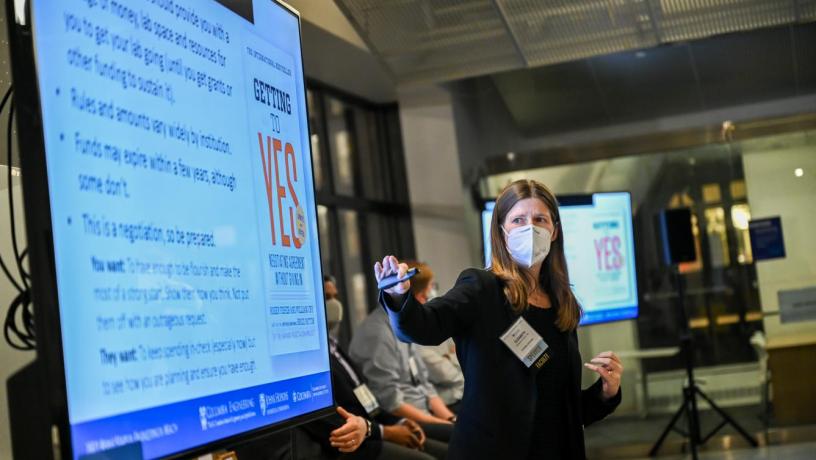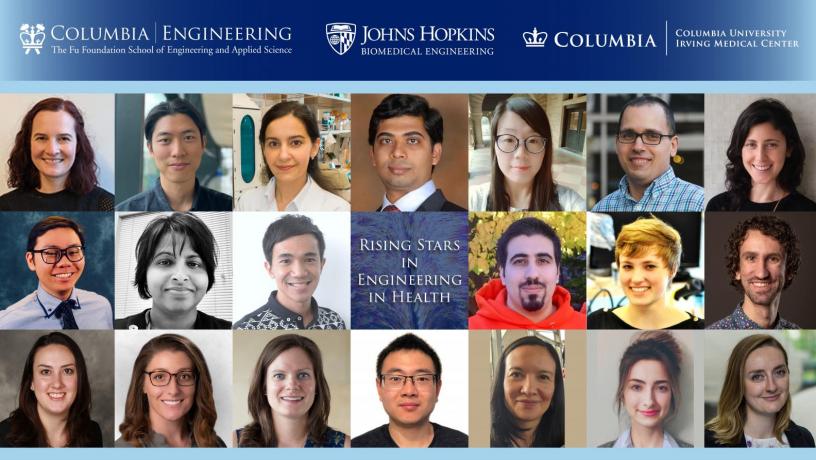Event Recap: 2nd Annual Rising Stars in Engineering in Health Workshop
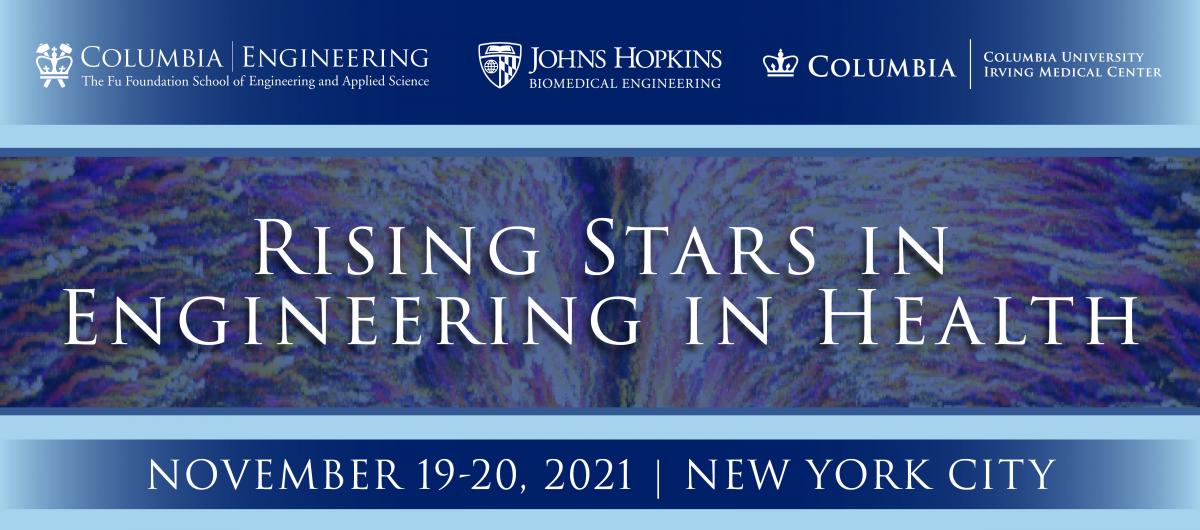
Once a year, the best and brightest young researchers working at the intersection of engineering and biomedicine gather to attend the Rising Stars in Engineering in Health Workshop. Those selected for the Rising Stars cohort are typically one to two years away from applying for a faculty position, hoping to gain valuable insight on the journey of a prospective new faculty researcher through the two-day interactive workshop. This year, the workshop was a joint venture between Columbia Engineering, Columbia Medicine, and Johns Hopkins Biomedical Engineering. Each institution pursues excellence in engineering in health and has prioritized doing so in an environment that embraces diversity, equity, and inclusion. This workshop represents the collaboration between Columbia and Johns Hopkins as they work side-by-side to innovate at the intersection of engineering and health science and educate the next generation of scientists.
“As two of the leading BME departments in the nation,” says Michael Miller, Chair of the Department of Biomedical Engineering at Johns Hopkins University, “it is Johns Hopkins’ and Columbia University's responsibility and privilege to help the next generation of promising young scientists develop their careers.”
X. Edward Guo, BME Department Chair at Columbia University, adds, “We were very pleased to work with wonderful colleagues at Johns Hopkins BME to host this outstanding Workshop. Congratulations to our extraordinary Rising Stars! We hope that all engineering and medical schools jump at the opportunity to hire these outstanding young stars in Engineering in Health.”
The 2021 workshop was held in a hybrid format on November 19 and 20. An atmosphere of excitement and inspiration surrounded all in attendance, participants and organizers alike. Compared to the 2020 virtual workshop, the in-person event allowed better opportunities for cultivating relationships, personalized mentoring and feedback, and networking among colleagues. The workshop kicked off with some icebreakers and a lightning talk workshop, where participants got the chance to receive feedback and fine-tune 5 minute presentations of their research. Later, each participant presented their lightning talk for everyone; the breadth of research covered was impressive, including topics ranging from improving implant outcomes, to new imaging technologies, to studying tissue loss during spaceflight. With one remarkable talk after another, the participants were able to share their own exciting discoveries and learn about those of their peers.
After the lightning talks came three panel sessions on the topic of applying for faculty positions. All sessions were packed full of valuable information for prospective researchers. The first session was a junior faculty panel offering of insights into the job application process from Cory Abate-Shen, PhD of Columbia, José McFaline-Figueroa, PhD of Columbia, Casey Overby Taylor, PhD of Johns Hopkins, and Jeremias Sulam, PhD of Johns Hopkins, moderated by Elham Azizi, PhD of Columbia. They broke down the expected timeline and components of applications, gave advice about knowing when to apply, and spoke of their own experiences with the process. The top tips from this panel session are summarized in the infographic below.
The second session was a virtual talk by Polina Golland, PhD, a Henry Ellis Warren (1894) professor of Electrical Engineering and Computer Science (EECS) at Massachusetts Institute of Technology. In a uniquely engaging and dynamic way, Dr. Golland shared her bag of tricks regarding the application process and interviews, collected over the years from watching candidates succeed (and not succeed). She dispensed many useful and often surprising pieces of wisdom, guiding attendees to new ways of thinking about the application, interviews, and steps to becoming faculty at an institution. The top tips about the interview process are summarized in the infographic below.
The third session consisted of a senior faculty panel with Elizabeth M.C. Hillman, PhD of Columbia, Warren Grayson, PhD of Johns Hopkins, Feilim Mac Gabhann, PhD of Johns Hopkins, and Kenneth P. Olive, PhD of Columbia, moderated by Edward Guo, PhD of Columbia and Michael Miller, PhD of Johns Hopkins. These accomplished faculty shared strategies for success as a faculty member, especially in the early years of the journey. Hearing from the collective experience of leading researchers in their fields was inspiring, and participants received priceless advice for surviving in academia. The top tips about starting a new research laboratory are summarized in the infographic below.
After the day 1 sessions concluded, attendees enjoyed a dinner reception at The Faculty House where the 2021 Rising Stars were presented with crystal awards and certificates.
After an action-packed first day, day 2 of the Rising Stars workshop continued the momentum with a career building workshop and one-on-one mock interviews. The program concluded with a panel of 2020 Rising Stars alumni who shared their recent experience in the job application process, followed by a cocktail reception al fresco.
In just two days, the 2021 Rising Stars cohort gathered invaluable information and gained essential skills to prepare them for the coming years in a career that is as challenging as it is rewarding. The world persists in its struggle against an ongoing pandemic, and health crises continuously develop and evolve; despite it all, Rising Stars of past, present, and future rise to the challenge. As representatives of the next generation of researchers, our Rising Stars give us reason to look forward with optimism and trust that the future of engineering in health is in good hands.
Click here to view photos from the 2021 workshop.
You can read more about the 2021 Rising Stars cohort here. Interested in applying for the 2022 Rising Stars in Engineering in Health? Learn more about the program below!
ABOUT THE RISING STARS IN ENGINEERING IN HEALTH PROGRAM
The Rising Stars in Engineering in Health program was created in 2020 by Columbia Engineering and Columbia Medicine to educate, train, and empower emerging leaders in academia at the intersection of engineering and biomedicine. The annual program welcomes applicants from across the United States and Canada, including postdoctoral fellows, research scientists and graduate students, who are 1-2 years away from applying for a faculty position. We especially encourage applicants from groups historically underrepresented in the disciplines. For the first time this year, we have partnered with Johns Hopkins University to co-host the program. Moving forward, each year, we will alternate the location of the two-day training workshop between Columbia's NYC campus and Johns Hopkins' Baltimore campus. Be sure to follow Columbia BME (@ColumbiaBME) and Johns Hopkins BME (@JHUBME) on social media for updates about the next call for applications!
As two of the leading BME departments in the nation, it is Johns Hopkins’ and Columbia University's responsibility and privilege to help the next generation of promising young scientists develop their careers.
We were very pleased to work with wonderful colleagues at Johns Hopkins BME to host this outstanding Workshop. Congratulations to our extraordinary Rising Stars! We hope that all engineering and medical schools jump at the opportunity to hire these outstanding young stars in Engineering in Health.
